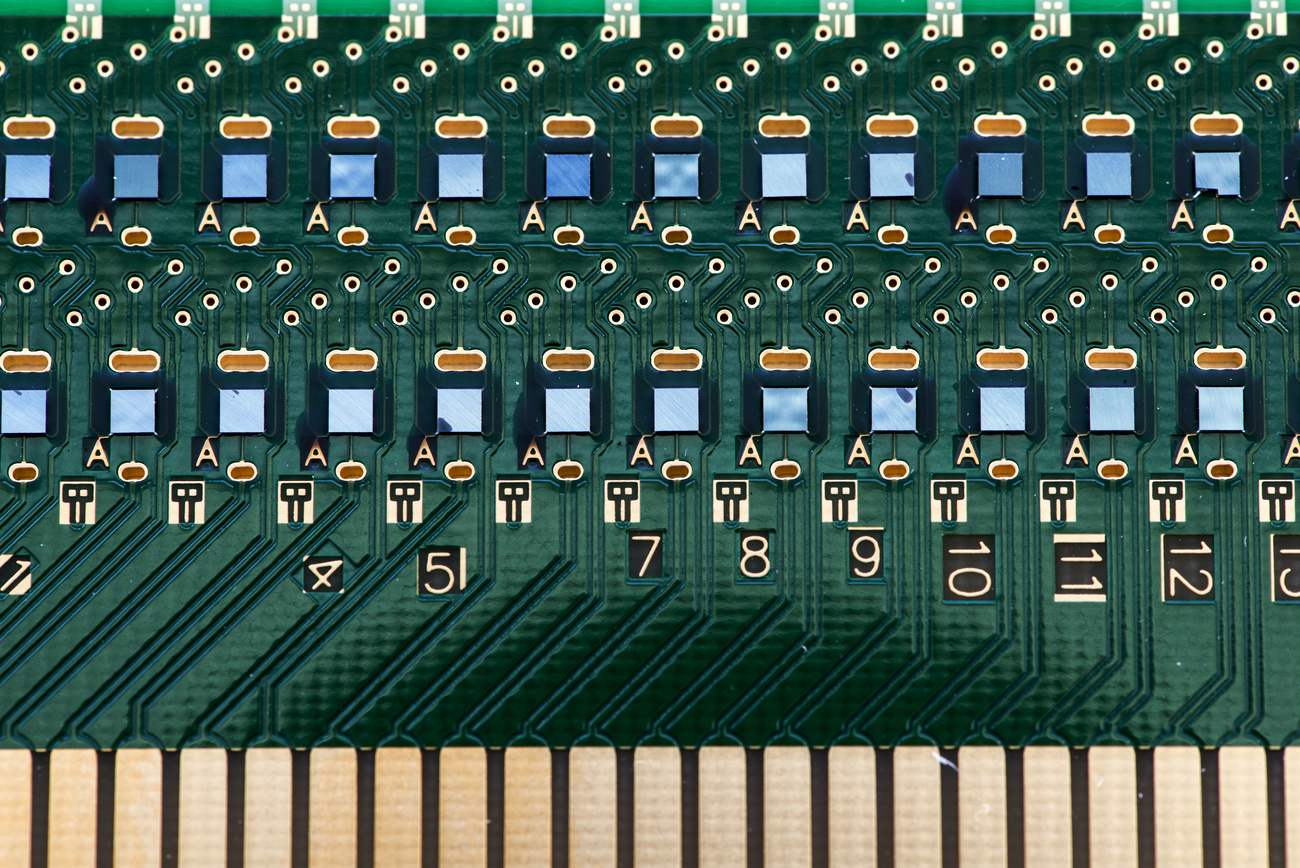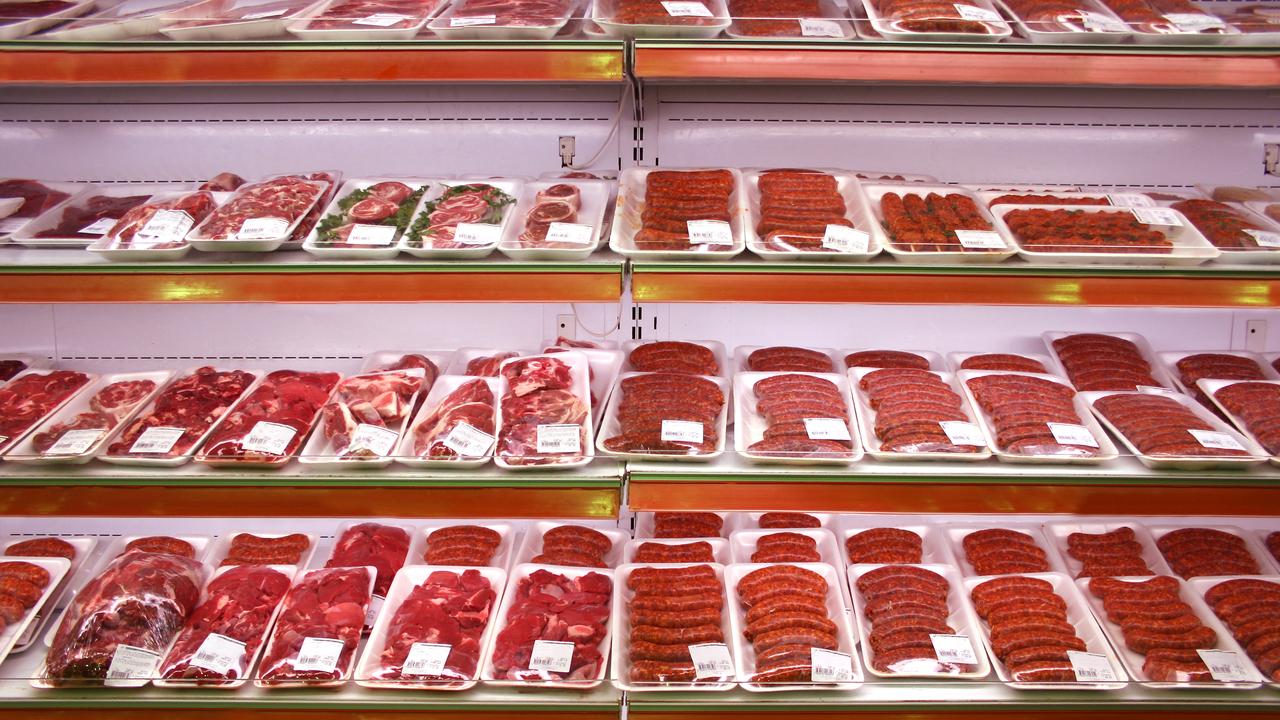Switzerland caught in middle of US-China race for AI dominance

The United States is threatening to choke the supply of artificial intelligence (AI) chips to Switzerland just as new, more efficient, Chinese DeepSeek models open the floodgates for greater AI innovation.
+Get the most important news from Switzerland in your inbox
In the last days of his administration, former US President Joe Biden signed an executive orderExternal link to further restrict exports of the cutting-edge AI hardware, in a bid to protect US leadership in the technology. The US, which dominates the production of latest generation AI chips, is afraid that competing superpowers, like China and Russia, could use US innovation and hardware to harm American interests.
The new US ordinance waives restrictions for a handful of countries considered to be most trustworthy, mainly in Europe. But Switzerland was not among them. This could impact a range of Swiss industries that are incorporating AI innovation to gain a competitive edge, from the makers of drugs and medical devices, automative vehicles, the robotics sector to finance.
+ Read how US heavyweights are boosting the Swiss AI scene
It’s not certain whether the new Trump administration will adopt the tightened restrictions, which are due to come into force in May. But Switzerland is nevertheless scrambling to improve its position.
“The Americans divide countries into different categories. This categorisation is difficult to understand,” Economics Minister Guy Parmelin told the NZZ am Sonntag newspaper. “We are in the second category, which receives fewer chips. We first need to understand the reasons for this. Are they security concerns? Is it to slow down development in Switzerland?”
Explosive AI growth
The problem has been compounded by the arrival of the new R1 model from Chinese company DeepSeek – a more advanced competitor to the likes of ChatGPT that reasons internally before spitting out an answer. The computing techniques used to build R1 have been heralded as a major efficiency breakthrough because they manage to squeeze more performance out of chips.
The company promptly released its optimisation recipe to the global public, allowing others to replicate its efforts.
Switzerland now faces the uncomfortable position of being starved of vital hardware at just the wrong time, says Marcel Salathé, co-director of the AI Center at the Swiss Federal Institute of Technology Lausanne (EPFL).
“Switzerland cannot afford to be compute constrained in the age of explosive AI growth,” he told SWI swissinfo.ch. DeepSeek’s efficiency breakthrough is a double-edged sword, he added. More can be done with existing chips at a lower cost, but this will only increase the pace of AI development, and demand for more chips.
+ AI regulation and Switzerland
“As AI models continuously improve, overall demand for AI will explode and our current compute needs will be used up very quickly,” said Salathé.
New thinking machines
As if to prove his point, in the last few days developers on the opensource AI community Hugging Face have already produced 700 different AI models, copying DeepSeek’s cost-efficient methods. These models can be directed at specific tasks, such as helping doctors to diagnose ailments by rapidly sifting through patient medical histories.
“R1 has effectively closed the gap between closed, proprietary models and opensource,” said Lewis Tunstall, senior research scientist at Hugging Face. “This will allow people all over the world to get a taste of what it’s like to have these new thinking machines at their fingertips.”
If the US quotas come into force in May, Switzerland would be restricted to around 16,500 best-of-class AI chips between 2025 and 2027, according to CH++, a Swiss non-profit organisation that aims to strengthen science and technology in the Alpine state. Around 60% of this quota could easily be used up by Switzerland’s 20 largest companies, the group added in a press releaseExternal link.
Supercomputer upgrade difficult
To put this in perspective, Switzerland’s Alps supercomputer currently uses 10,752 Nvidia Grace Hopper chips – the most advanced of their kind.
The Swiss National Supercomputing Centre (CSCS) unveiled the supercomputer last autumn and has enough chips for the time being. But “if these restrictions persist, it might affect a future upgrade of the system. For example, if we decide on an upgrade in the timeframe 2028-2032,” said CSCS associate director Maria Grazia Giuffreda told SWI swissinfo.ch.
+ ChatGPT: intelligent, stupid or downright dangerous?
Rahul Sahgal, CEO of the Swiss-American chamber of commerce is also concerned about the impact of a chip blockage for Switzerland’s supercomputer and other AI research activities at the federal institutes of technology.
Restricting crucial AI research in Switzerland could have adverse knock-on effects for US investments into the Alpine state, he fears.
“If these export restrictions come into effect, it will have negative consequences for Swiss-US trade relations. Particularly affected would be research institutions, which rely heavily on US AI chips,” Sahgal told SWI swissinfo.ch.
“This could limit research and knowledge exchange between the two countries and potentially lead to a decrease in US investment in Switzerland, as many US companies, operate research centres in Switzerland.”
Influential US AI companies, such as OpenAI and Anthropic, have opened offices in Zurich.
“The latest AI chips have a shelf life and will become outdated when the next generation chips come along every few years,” said EPFL’s Salathé. “Our current infrastructure will not last decades.”
“We are already thinking how many more chips we might need for the next five years. This is impossible to plan if you don’t even know if your orders will be realised.”
Switzerland’s options will be limited if access to US AI chips is reduced to a trickle as no other country comes close to producing the latest generation chips.

More
US restricts Switzerland’s access to AI chips
On January 13, the United States tightened measures to stop cutting-edge AI technology getting into the hands of ‘hostile’ countries.
Severe US AI chip export restrictions or bans already existed for countries like China, Russia, North Korean and Iran. The updated regulations would add new layers of embargoes.
Australia, Belgium, Canada, Denmark, Finland, France, Germany, Ireland, Italy, Japan, the Netherlands, New Zealand, Norway, Republic of Korea, Spain, Sweden, Taiwan, and the United Kingdom are the only countries exempted from the provisions. Switzerland is among a host of countries in the tier 2 category, which attracts certain restrictions.
The ordinance seeks to limit the amount of computing power (measured as Total Processing Performance TPP units) enabled by US produced hardware.
According to CH++ Switzerland’s TPP limit has been set at 790 million TPP units, equivalent to around 16,500 latest generation AI chips, for the period 2025-2027.
Under the ordinance, countries could apply for National Validated End User (NVEU) status, which could grant a much larger allocation of up to 5,064,000,000 TPP (around 320,000 Nvidia H100 chips) by 2027.
However, this would involve “stringent security requirements and complex compliance obligations that many organizations may find challenging”, according to CH++.
If approved by the Trump administration, the new export restrictions would come into force on May 15, following a consultation period.
Edited by Virginie Mangin/sb

In compliance with the JTI standards
More: SWI swissinfo.ch certified by the Journalism Trust Initiative









You can find an overview of ongoing debates with our journalists here . Please join us!
If you want to start a conversation about a topic raised in this article or want to report factual errors, email us at english@swissinfo.ch.